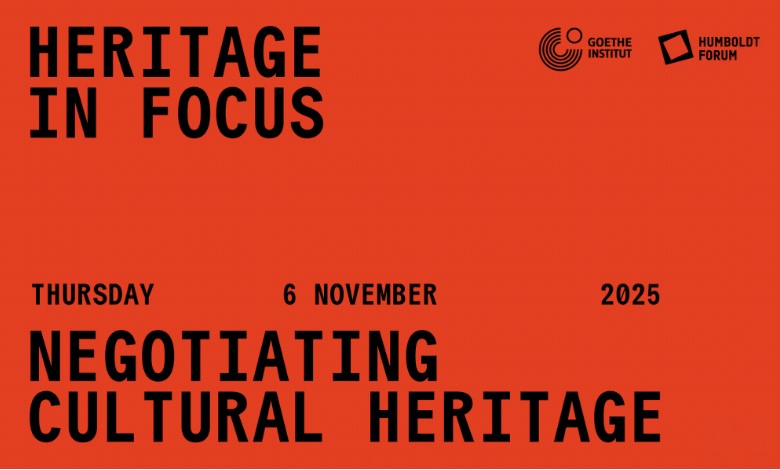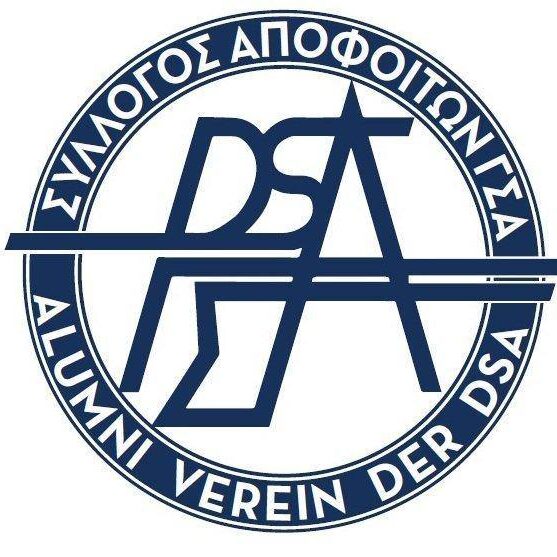 Η Ήρα Καλιαμπέτσου συμμετέχει στην ημερίδα “Negotiating Cultural Heritage”, την 4η της σειράς “Heritage in Focus” που διοργανώνει το Goethe Institut με το Humbolt Forum.
Η Ήρα Καλιαμπέτσου συμμετέχει στην ημερίδα “Negotiating Cultural Heritage”, την 4η της σειράς “Heritage in Focus” που διοργανώνει το Goethe Institut με το Humbolt Forum.
Πέμπτη 6 Νοεμβρίου στις 19:00 στο Goethe
στα αγγλικά με ταυτόχρονη μετάφραση στα ελληνικά
θα ακολουθήσει δεξίωση με ποτό και μουσική
19:00 Screenings
Parthenon Rising (II)
Bill Balaskas, 2011, 2΄45΄΄
Acropolis
Eva Stefani, 2001, 25΄
In the presence of the director
Language: Greek, with English subtitles
 20:00 Introductory Keynote: Sebastian Conrad
20:00 Introductory Keynote: Sebastian Conrad
Roundtable Discussion: Christos Chrissopoulos, Sebastian Conrad, Golda Ha-Eiros, Ira Kaliampetsos
Moderation: Sophia Handaka
Language: Greek, with English subtitles
For some years now, people everywhere have been discussing the restitution of cultural belongings – a debate that is by no means confined to the professional museum setting. The question of who owns, exhibits, or uses cultural heritage is pivotal in granting the authority to interpret culture, defining national and cultural identities, and – ultimately – bolstering political power.
The “Global South” has been a frequent focus of attention in debates of recent years. The return of the Benin Bronzes to Nigeria from Berlin, where they had formed part of the collection at the Ethnologisches Museum, made international headlines – partly because they betokened, in condensed form, the structures of violence that were inherent in European colonialism and have long been glossed over. However, Greece’s demands for the return of the Parthenon frieze (the so-called Elgin Marbles) from the British Museum show that stolen cultural properties can also be a source of controversy in European contexts. While this issue, which has been festering for years, has recently become more high-profile in Greece, both in the media and in society at large, the dubious acquisition history of ancient cultural artefacts in Germany has long gone unremarked.
What is the current status of the debate on cultural heritage? How do restitution claims relate to questions of national identity (or identities)? Do museums of ancient art need to address the same critical questions that ethnological collections, for example, are now faced with? And can the wrangling about plunder looted from the Global South during the colonial period enrich the debate on antiquities?
The fourth (and final) edition of the Heritage in Focus series homes in on cultural heritage. Where previous editions tackled intangible heritage, urban heritage and natural heritage, the thematic spotlight shifts this time to tangible “objects”. The topic will be examined from a number of different angles during an evening featuring art, films and debates. Berlin historian Sebastian Conrad uses the example of the bust of Nefertiti, which originally came from Egypt, to show how a stolen artefact from antiquity can become a global icon and at the same time be an emblem of debates about looted property. Experts from Greece, Namibia, and Germany discuss the need for cultural heritage to be returned to its country of origin and consider the limits of such a process. Two artworks pose critical questions about the symbolism of the Acropolis and examine ways in which it is overused: Bill Balaskas’s video work Parthenon Rising (II) looks at the touristification of the landmark, while Eva Stefani’s film Acropolis explores the significance of the national symbol of Greece in creating a sense of national identity and engendering collective memory.
The evening will conclude with music and drinks.
The Event Series Heritage in Focus
The idea of “heritage” is currently experiencing a real surge in interest in academia, politics, cultural institutions, and the media. While in the past it was chiefly associated with aspects of private law, such as inheritance law, and, in the broader social context, with the preservation of architectural monuments, the word “heritage” has taken on a whole new range of meaning in recent years, and its use has expanded accordingly. This is partly due to UNESCO, which has redefined the term and in recent years has significantly extended the provisions that are in place to protect human “cultural heritage”. Cultural traditions, customs, and food were given protected status twenty years ago: from the Byzantine chants of Greece and Cyprus to Berlin’s club “culture”, which was once considered avant-garde and subversive but is now under threat.
In parallel to this and encouraged by public debates, there has, in recent years, been growing academic interest in “heritage”: the question of what is meant by “heritage” is now the subject of much discussion among history scholars and in the realms of cultural science, ethnology, and museum studies; this raises further questions about nation building, restitution, and provenance, and about how to deal with (post)colonialism and the overexploitation of people and nature. To give an example: in connection with the climate crisis and postcolonial debates – relating, for instance, to non-human agency – do rivers, forests, and other natural landscapes have rights of their own, and shouldn’t they also enjoy protected status as non-cultural heritage? And don’t mineralogical and natural history collections also tell (cultural) stories of relationships of dependency and human exploitation? At the same time, there are also some early dissenting voices that are critical of an expansive focus on the past – which they regard as “nostalgic” – and in turn contribute to an analytical examination of the topic.
The Heritage in Focus, organised by Goethe-Institut Athen and the Humboldt Forum, looks at the question of “heritage” from four different angles, with a special focus on Germany and Greece. Based on the major shift in recent years in how the term is interpreted and a growing interest in the subject, there will be four panel discussions looking at topics such as intangible heritage and urban heritage and at the range of issues connected with nature and heritage as well as the question of nation building as it relates to finds of antiquities and restitution. The results of this series will be presented in 2026–27 as part of the focus on “heritage” at the Humboldt Forum.

